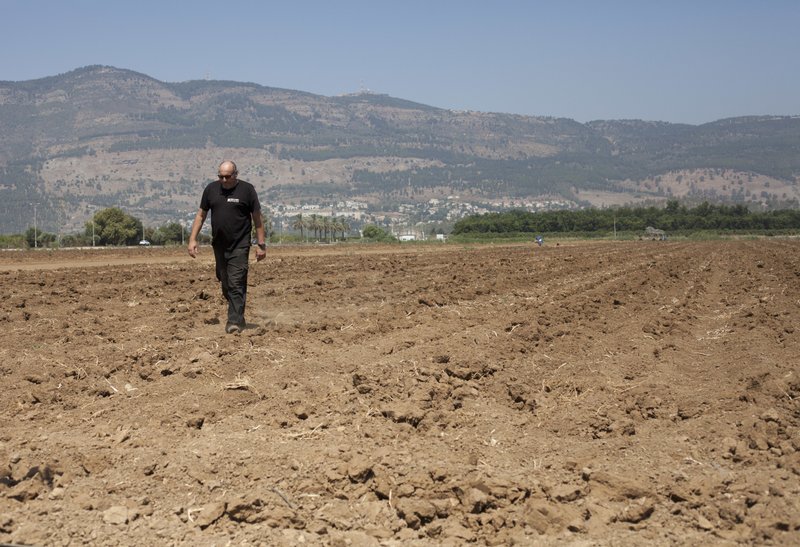KFAR YUVAL, Israel -- For years, public-service announcements warned Israelis to save water: Take shorter showers. Plant resilient gardens. Conserve. Then Israel invested heavily in desalination technology and professed to have solved the problem by tapping into the Mediterranean Sea. The once ubiquitous conservation warnings vanished.
Now, a five-year drought is challenging that strategy, as farmers struggle and the country's most important bodies of water shrink.
It's a confounding situation for a country that places itself on the forefront of desalination technology in an arid region, where water is a key issue that has its own clauses in peace agreements.
"Nobody expected five years of drought in a row, so despite our desalination capacity, it's still a very, very grave situation," said Yuval Steinitz, Israel's minister of energy.
Some say Israel's technological prowess may not be enough to overcome the forces of nature.
Situated in the heart of the Middle East, Israel is in one of the driest regions on earth, traditionally relying on a short rainy season each winter to replenish its limited supplies.
Years of decreased rainfall have reduced the Sea of Galilee, Israel's main natural water source, to some of its lowest recorded levels, and Israel has stopped pumping water from it to its national system.
The current drought has also dried out some tributaries that feed into the Jordan River, which flows south into the Sea of Galilee then squiggles 220 miles to the lowest place on Earth, the Dead Sea.
The biblical bodies of water are crucial to the survival and stability of Israel, Jordan and the Palestinian territories, but they are increasingly drying up, largely because of climate change, growing populations and the greater use of water for agriculture.
To achieve water security, Israel has opened five desalination plants since 2005 and plans to expand that effort in the coming years. Roughly 40 percent of Israel's drinking-quality water now comes from desalination and is expected to hit 70 percent in 2050.
When the drought was in its infancy, Israel greeted it with a shrug, pointing to its investment in desalination. But the tone has changed recently, and over the past few months a televised ad again has pleaded with Israelis to save water because -- rehashing a tagline from previous campaigns -- "Israel is drying up."
Critics say water conservation -- a crucial measure in semi-arid Israel -- has been sidelined in favor of desalination.
"Israel definitely put conservation on the back burner. As soon as desalination plants were up and running there was this false sense of security," and water consumption rose, said Sarit Caspi-Oron, director of the water department at the Israel Union for Environmental Defense, an advocacy group.
"Desalination doesn't make up for everything, and when groundwater is suffering from drought and the Sea of Galilee is suffering from drought, you need to conserve," said Caspi-Oron.
In the past, Israel has imposed taxes on water use during droughts and has promoted the use of water-saving devices. But there are no plans so far to pursue the measures this time around.
Desalinated water reaches Israeli households in the country's most populated region along the coast as well as some inland residents. But in northern Israel, residents still rely on rapidly shrinking natural sources. So far, their intake has not been limited.
Once-bubbling brooks in Israel's north have been reduced to trickles. Officials at the historic Tel Dan nature reserve say the springs there will be dry within two months, which could negatively affect tourism in the region.
Among the first to feel the drought's sting have been farmers in Israel's Galilee region. Israel has imposed a limit on the amount of water they can use, which has threatened an already tenuous livelihood and forced many to rethink their crops.
The existing infrastructure makes it impossible to deliver desalinated water to farmers in the north, said Caspi-Oron.
A Section on 08/05/2018
